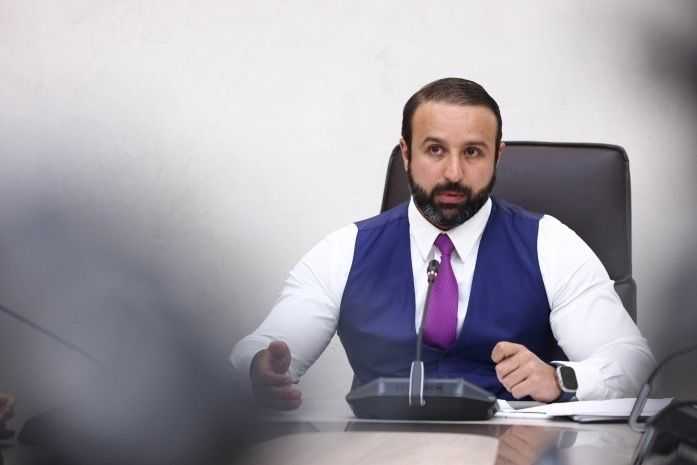
Georgia’s parliamentary majority has amended the country’s defence code, closing loopholes allowing conscientious objectors and long-distance students to defer their military service.
Thursday’s amendments revoked exemption from military service for students enrolled in full-time distance study, as well as complicating a process used by conscientious objectors to immediately defer their service.
This follows the introduction of a new defence code in September, which removed exemptions for all clergy with the exception of Orthodox priests.
Legally challenging a drafting commission’s refusal to provide exemption or alternative service would previously temporarily halt an individual’s drafting. However, under the new rules, a legal challenge does not obstruct a person’s drafting until the court rules in their favour, a process that can take up to 20 days. Human rights defenders have warned that the process could, in fact, take significantly longer, due to a backlog of cases in courts.
Men who are Georgian citizens between the ages of 18 and 27 are required to complete military service, during which time they receive a monthly stipend ranging from ₾5—₾52 ($1—$19) as of 2020.
Draftees are required to choose one of three options within ten days of receiving their draft notice: a two-year junior officer training programme, a four-year student training programme, or one of a six, eight, or eleven-month part-time military service scheme.
While ‘active’ students are exempt from military service for the duration of their studies, the amendments also established that students engaged in full-time distance learning while living in Georgia would no longer be exempt. An ‘active’ student must now be studying in Georgia, engaged in hybrid study, or studying abroad.
Previously, the term was used to contrast those currently studying with those who had been suspended — due to poor performance or, more commonly, their failure to pay for their studies.
Deputy Defence Minister Grigol Giorgadze suggested during the parliamentary hearings that the aim of the amendment was to discourage Georgian universities from marketing distance-learning educational programmes to those seeking to avoid being drafted.
Despite objections from several opposition MPs, including Reform parliamentary group MP Teona Akubardia and members of Girchi — New Political Centre, the changes were adopted in an expedited manner, fast-tracking three mandatory hearings, with voting completed in two days.
The defence code adopted in September drew criticism from human rights advocates, as it eliminated exemptions for the clergy with the exception of Orthodox priests, who retained the privilege as per a 2002 constitutional agreement between the state and the Georgian Orthodox Church.
In recent years, the ruling Georgian Dream party has been open about their intention to amend the defence code to close a loophole that has allowed tens of thousands to avoid conscription by registering as ‘priests’ with the Christian Evangelical Protestant Biblical Freedom Church. The church is a fictitious religious group set up by the libertarian Girchi party in 2017, with the intention of providing young people with a way to avoid the draft.
[Read more: Georgian opposition party registers ‘religion’ for men to avoid conscription]
Many young Georgians who attempt to legally challenge their drafting face the prospect because their student status has been suspended due to their inability to pay their tuition fees.
Amendments were also made to the Georgian Law on Personal Data Protection to allow the state to process citizens’ personal information on religious affiliation.







